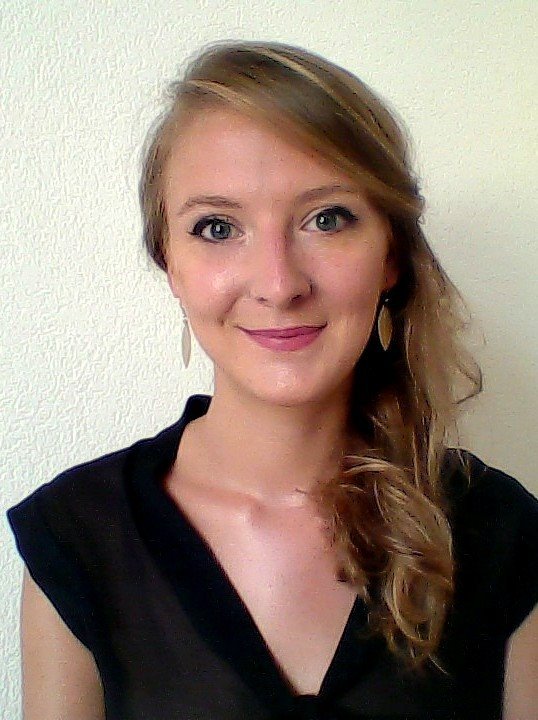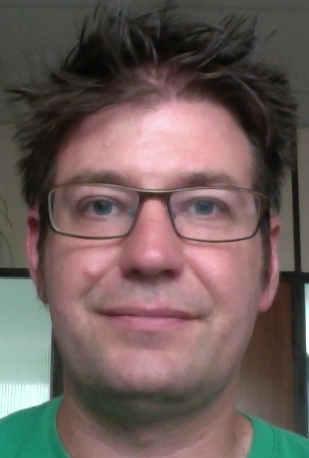
Dr. Gustav Kuhn, D.Phil., M.M.C.
Gustav Kuhn is a cognitive psychologist interested in human perception and cognition. Much of his research focuses on magic and explores ways in which magicians allow people to experience the impossible. He is the head of the MAGIC lab at the University of Plymouth, where psychologists use magic methods to study a wide range questions about human cognition. For example, why is your mind so easily trick? How can we misdirect your attention, and why is your experience distorted by perceptual, attentional, and other more general cognitive illusions? He believes that the science of magic can provide us with valuable insights into human cognition. Much of his other research centers on social cognition, and attentional processes involved in social interactions.

Dr. Anthony Barnhart, Ph.D.
Dr. Anthony Barnhart is an Associate Professor of Psychological Science at Carthage College in Kenosha, Wisconsin. He received his Ph.D. in Cognitive Science from Arizona State University. Tony is also a part-time professional magician with over 20 years of performing experience. His research trajectory changed in 2010 with the publication of the book Sleights of Mind: What the Neuroscience of Magic Reveals about our Everyday Deceptions, in which he was featured as a consultant and teacher on the science of stage magic. The scientific interest that the book garnered motivated Tony to shift his focus toward the interface of science and magic. His current research on the topic explores inattentional blindness and the techniques magicians use to manipulate attentional deployment in time. He regularly teaches a college course devoted to the cognitive science of magic.

Dr. Matt L Tompkins, D.Phil., M.M.C.
Matt Tompkins is an experimental psychologist, professional magician, and author. He completed his DPhil at Oxford’s Department of Experimental Psychology, where his thesis focused on the historical and contemporary study of cognitive illusions. He now works for Lund University's Choice Blindness Lab on a project designing fake mind control machines. His work has featured across international media outlets including the BBC, The Washington Post, and Buzzfeed. His latest book, The Spectacle of Illusion, explores the historical relationships between scientists, magicians, and fraudulent mystics.

Dr. Alice Pailhès, Ph.D.
Alice Pailhès obtained her PhD in Psychology at Goldsmiths, University of London. She is fascinated by the quirks of our mind and passionate about transmitting scientific knowledge outside academia. Her research focuses on using magicians' forcing techniques to study illusory sense of agency and illusions of control over choice, to better understand the subtle factors that influence our decisions without our awareness. Her work has been published in journals such as Proceedings of the National Academy of Sciences, Journal of Experimental Psychology: General, or Trends in Cognitive Sciences. She makes it accessible to the general public via her public talks and interventions across diverse media outlets and events such as TED, the BBC, Victoria & Albert Museum or the Wellcome Collection.

Dr. Jason Leddington, Ph.D.
Jason Leddington is a philosopher who works on perception, aesthetics, and philosophy of art. He is Professor of Philosophy at Bucknell University and—through 2021—a Marie Curie Fellow at the Centre for Philosophical Psychology at the University of Antwerp. His research on magic takes a multi-disciplinary approach to core questions such as: What is magic? What happens in the mind of a spectator who experiences a good magic trick? If magic involves being fooled, why are we attracted to it? As a Marie Curie Fellow, he’s working on a series of articles and a book on the philosophy of magic (under contract with The MIT Press). For more information about his work, see www.jasonleddington.net.

Prof. Brian Rappert, Ph.D.
Brian Rappert is a Professor of Science, Technology and Public Affairs at the University of Exeter. His long term interest has been with examining the strategic management of information, particularly in relation to armed conflict. His books include Experimental Secrets, How to Look Good in a War and The Dis-eases of Secrecy. In 2017, he began learning magic; a pursuit that culminated in the book Performing Deception: Learning, Skill and the Art of Conjuring. The questions he currently addresses include: How do magicians learn to act naturally? How can they care through deception? How do students of magic learn about the limits of perception, memory and cognition through their perception, memory and cognition?

Dr. Jeniffer Ortega, Ph.D.
Jeniffer Ortega is a Clinical Neuropsychologist and an amateur magician. She completed her Ph.D., at the National University of Colombia (Bogotá, Colombia). Her research was supported by the Department of Science, Technology and Innovation (COLCIENCIAS). In her doctoral research, she studied errors of visual metacognition using magic tricks that exploit failures of visual awareness such as intentional blindness and change blindness.

Dr. Jay Olson, Ph.D.
Jay Olson began magic at the age of 5 when a furniture store worker pulled a coin from his ear. After performing for most of his life, he worked with Dr. Ronald Rensink at the University of British Columbia to study the psychology of magic. Jay completed his PhD in Psychiatry at McGill University with Dr. Amir Raz. Jay's research examines how magic, suggestion, and deception can be combined to create new methods in psychology. His studies have shown how magicians subtly influence audiences and how people can be deceived into believing that a machine is controlling their mind. Beyond the science of magic, Jay is interested in applying psychological findings to prevent jet lag and reduce shift work fatigue.

Lise Lesaffre, B.A., M.Sc.
Lise Lesaffre is also exploring magic, not that much in practice, but from a cognitive experimental perspective. Her PhD project is supported by the Swiss National Science Foundation (supervisor Christine Mohr, co-supervisor Gustav Kuhn). In this project, the team investigates how experiencing an “impossible event” can affect people’s magical beliefs and associated cognitive biases (e.g. appreciation of chance). Lise is majorly responsible in developing an innovative design and methodology to investigate people's beliefs, using specific psychic demonstrations, and cognitive measures. She is also interested in the definition, perception and interpretation of magic in various populations (i.e. children, adults, particular patient populations).

Dr. Hugo Caffaratti, Ph.D., M.M.C.
Hugo graduated from University Ramon LLull, Faculty of Engineering La Salle, in Barcelona, Spain, with a degree in Telecommunications Engineering. During this degree his specialisation was Electronic Systems, with a view to moving towards Biomedicine. On completion of his studies, Hugo therefore undertook the (MSc) Master in Biomedical Engineering at the University of Barcelona and Polytechnic University of Catalunya. At the same time, Hugo developed a deep passion for the study of the psychology and theory of magic. After many years of professional training, he is now a semi-professional magician and a member of The Magic Circle (London). While working at the Centre of Nanotechnology of Catalonia, he met some neuroscientists that started to be interested in how magic can help to better understand the human brain. A year after, Hugo embarked on a PhD in one of the most innovative branches of cognitive neuroscience: The Neuroscience of Magic. This research was undertaken at the Centre for Systems Neuroscience at the University of Leicester, United Kingdom.
Currently, Hugo works as a postdoc researcher at the Psychology Department of Goldsmiths University in London, and is director of AbraLabs (Abracademy), the first private laboratory focused exclusively in the research of the Neuroscience of Magic.

Dr. Gustav Kuhn, B.Sc., D.Phil., M.M.C.
Gustav Kuhn is a cognitive psychologist interested in human perception and cognition. Much of his research focuses on magic and explores ways in which magicians allow people to experience the impossible. He is the head of the MAGIC lab at Goldsmiths University in London, where psychologists use magic methods to study a wide range questions about human cognition. For example, why is your mind so easily trick? How can we misdirect your attention, and why is your experience distorted by perceptual, attentional, and other more general cognitive illusions? He believes that the science of magic can provide us with valuable insights into human cognition. Much of his other research centers on social cognition, and attentional processes involved in social interactions.

Dr. Cyril Thomas, Ph.D.
Cyril is a French researcher and a skillful close-up magician. His approach is highly driven by a strong interest for perception, attention and problem solving. During the last two years, Cyril has published five articles on the science of magic topic in prestigious international journals and has recently obtained a grant from the Fyssen Fountation to conduct post-doctoral research at Goldsmiths, University of London, under the supervision of Dr. Gustav Kuhn. Cyril’s research examines methods often used by magicians relatively unexplored by psychologists, including the deceptive technique of presenting false solutions to enhance illusions. Cyril’s ambition is not only to shed an original light on cognitive process that psychologists already known, but to discover new perspectives that may provide grounds for the discovery of as-yet-unidentified cognitive processes.











